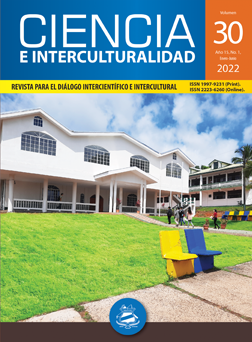The migrant subject in Carlos Carrión's “La ciudad que te perdió
DOI:
https://doi.org/10.5377/rci.v30i01.14266Keywords:
migration, La ciudad que te perdió, Carlos Carrión, novel, equalityAbstract
Migration has always been present in human beings. From biblical times to the present. Hence, relying on sociological, philosophical, anthropological and literary studies we problematize, exemplify and have analyzed the main aspects that affect the migrant subject in La ciudad que te perdió novel, by the writer Carlos Carrión. Therefore, this article analyzes the representation of the migrant subject in the aforementioned novel. In order to carry out this study, we have used a qualitative research that, due to its scientific nature, will imply a great descriptive rigor of texts related to the subject of study. The analyzed categories of the aforesaid novel suggest that, according to the Europeanist vision, the Ecuadorian migrant subject, with the corresponding greed and severity, mistreats the migrant; in addition, they are seen as "inferior beings" without rights, propitious to mistreat and vilify them. This despite the many efforts to achieve a longed-for human equality, free of suffering and humiliation
Downloads
537
HTML (Español (España)) 104
EPUB (Español (España)) 123
XML (Español (España)) 199
resumen audio (Español (España)) 118
Abstract 116
Downloads
Published
How to Cite
Issue
Section
License

This work is licensed under a Creative Commons Attribution-NonCommercial-NoDerivatives 4.0 International License.
Copyright © (URACCAN)

This journal is licensed under a Creative Commons Attribution-NonCommercial-NoDerivatives 4.0 International License.
This license allows others to download the works and share them with others, as long as their authorship is acknowledged, but they can not be changed in any way nor can they be used commercially.




